ZEEWA BLUEPRINT
Zeewa.io Blueprint
The average person in the West takes their trash out 50 times a year. Members of our Zeewa community do this only 10 times a year. This is the equivalent if England would stop producing trash overnight in the UK completely. Zeewa is a zero emission waste management community that works.
Zeewa was born out of the need to eliminate illegal dumpsites across Hungary. We built a community of enthusiasts and activists who registered over 6000 dumpsites in the country, called Waste Hunters. Then we got to work and started working with both government and private organisations to help secure support and funding for getting rid of these dumpsites for the benefit of both the local environment and communities.
Our mission is to enable and support local communities dedicated to cleaning up their environments. According to United Nations we dump over 2.12 billion metric tons of waste on our planet every year. Meaning that if we were to keep this trend, we’d soon need another Earth just to store our trash. 99% of this comes from our consumption focused society, where within 6 months of purchase we throw our things away.
he Zeewa Community consists of activists who seek out and clean up these sites. So far most of our members have been doing so out of pure enthusiasm and by introducing “spot funding” through secure smart contracts we can enable crowdfunding to enable targeted support for local issues.






